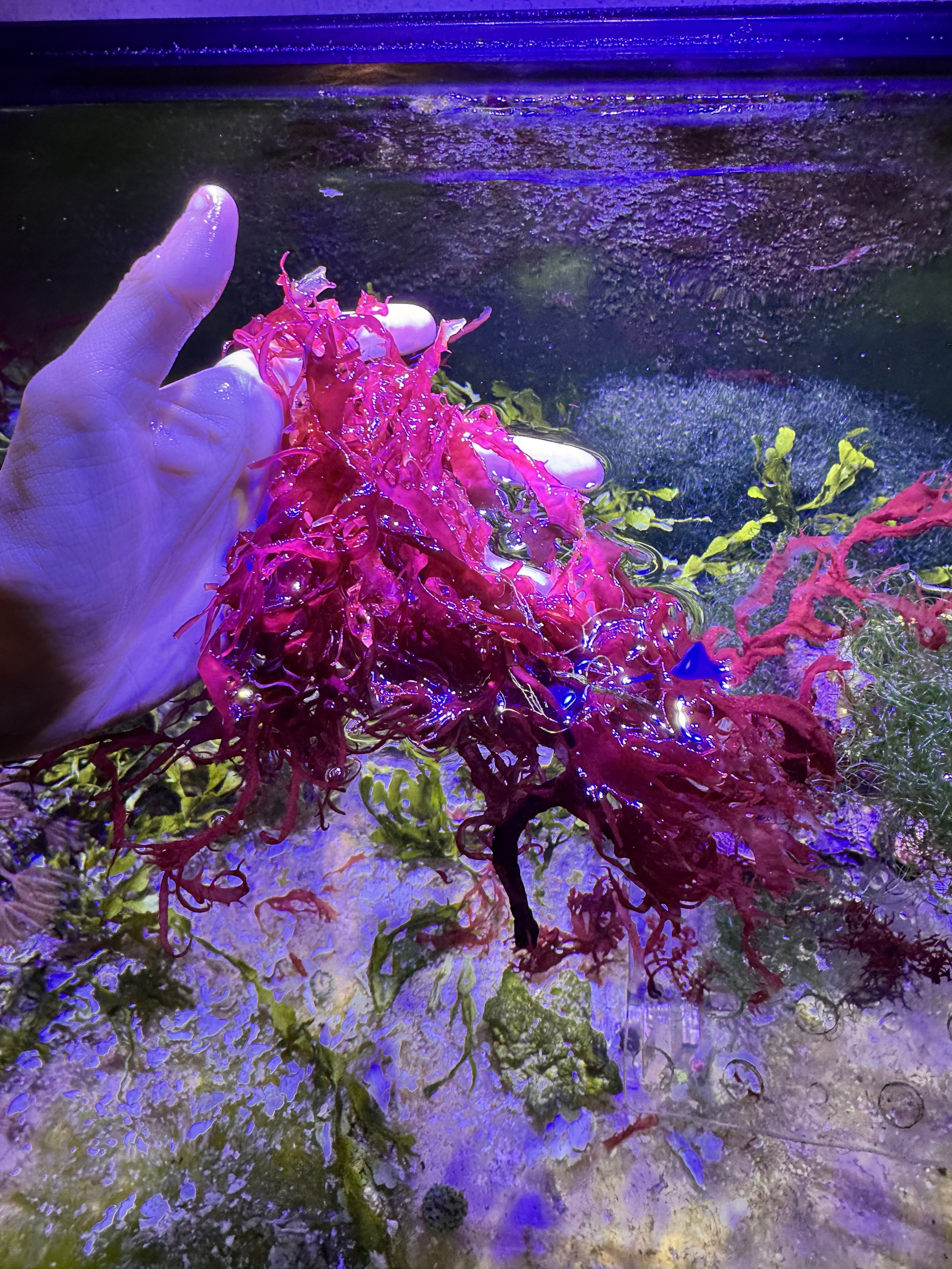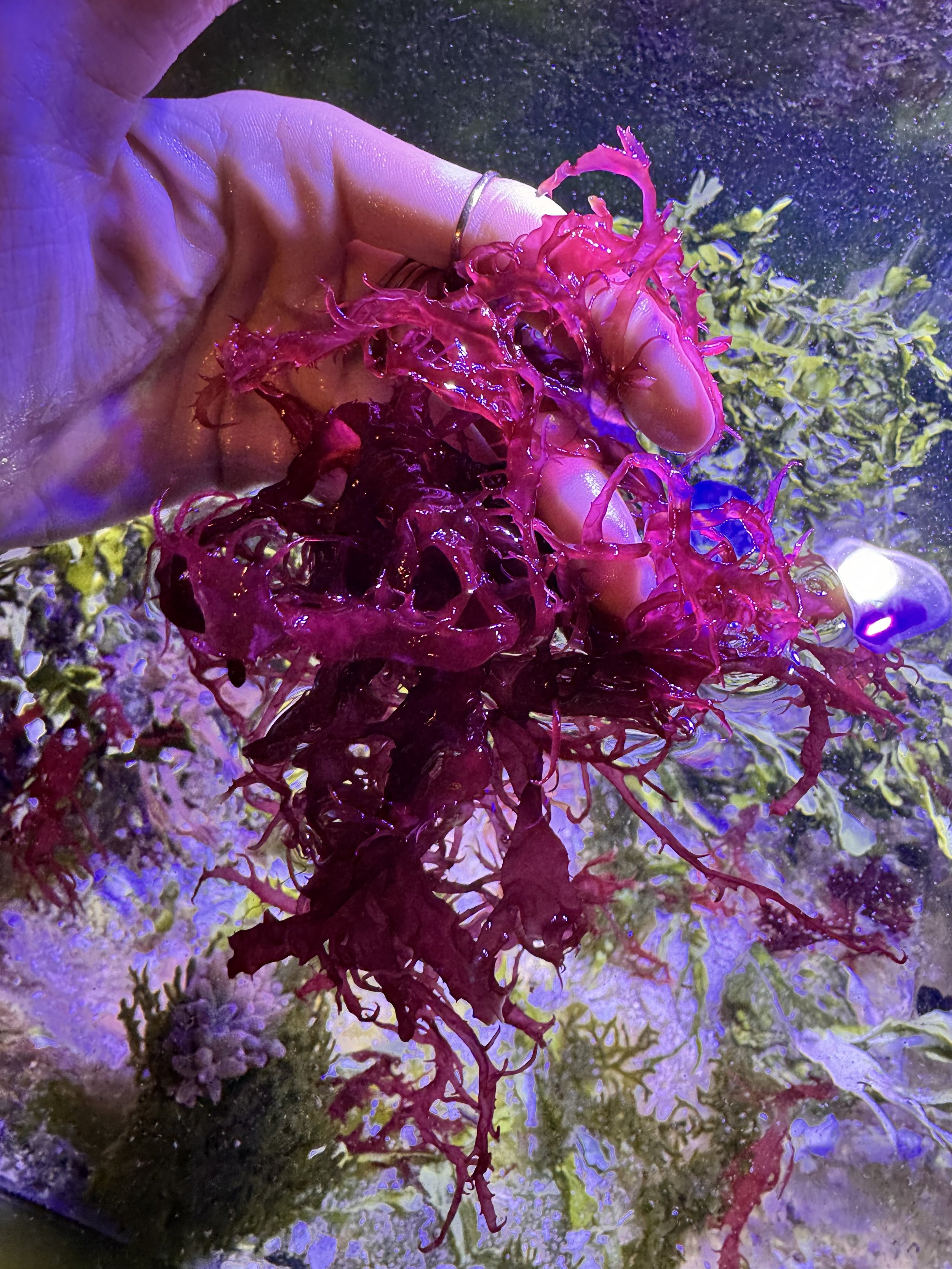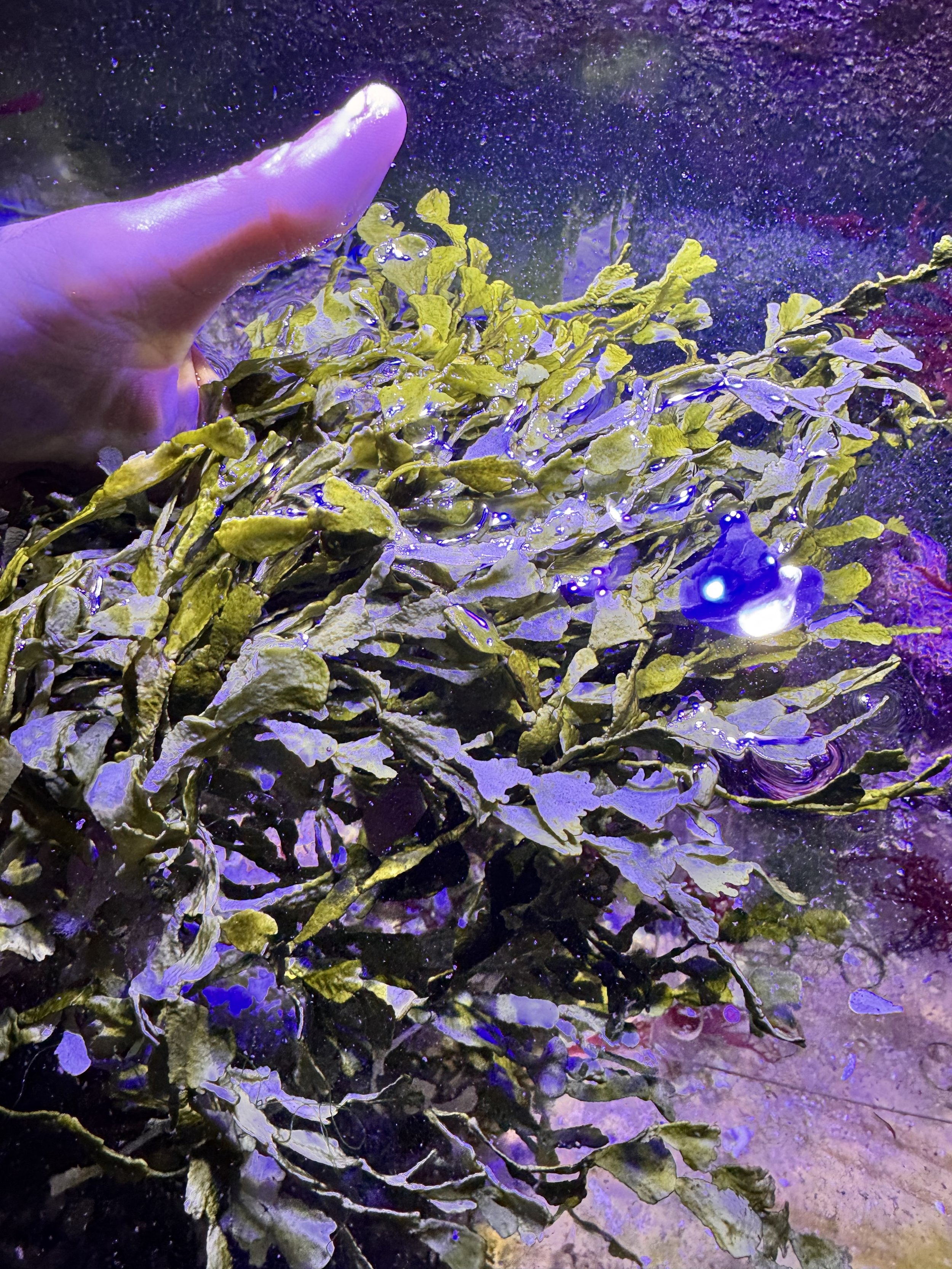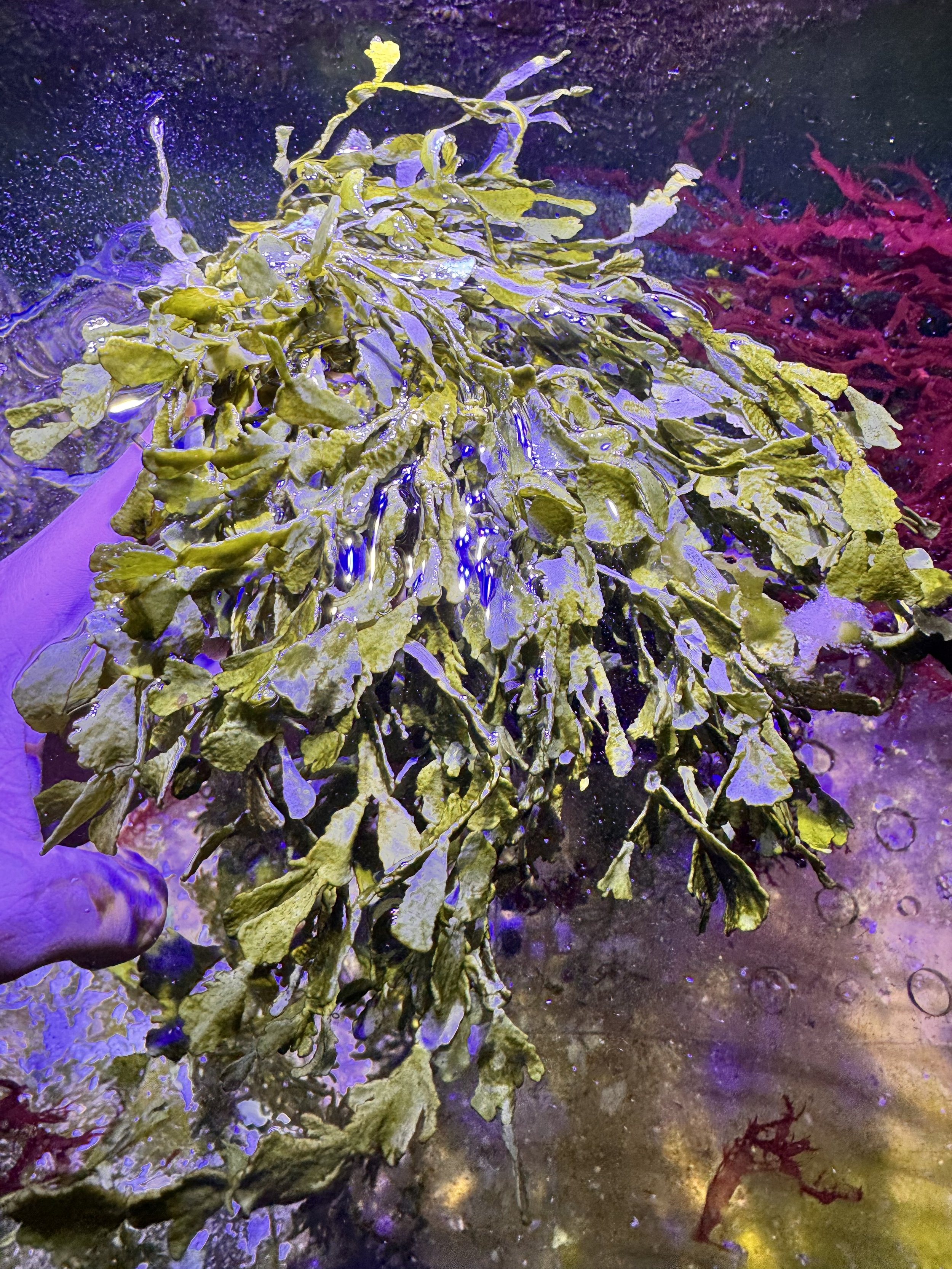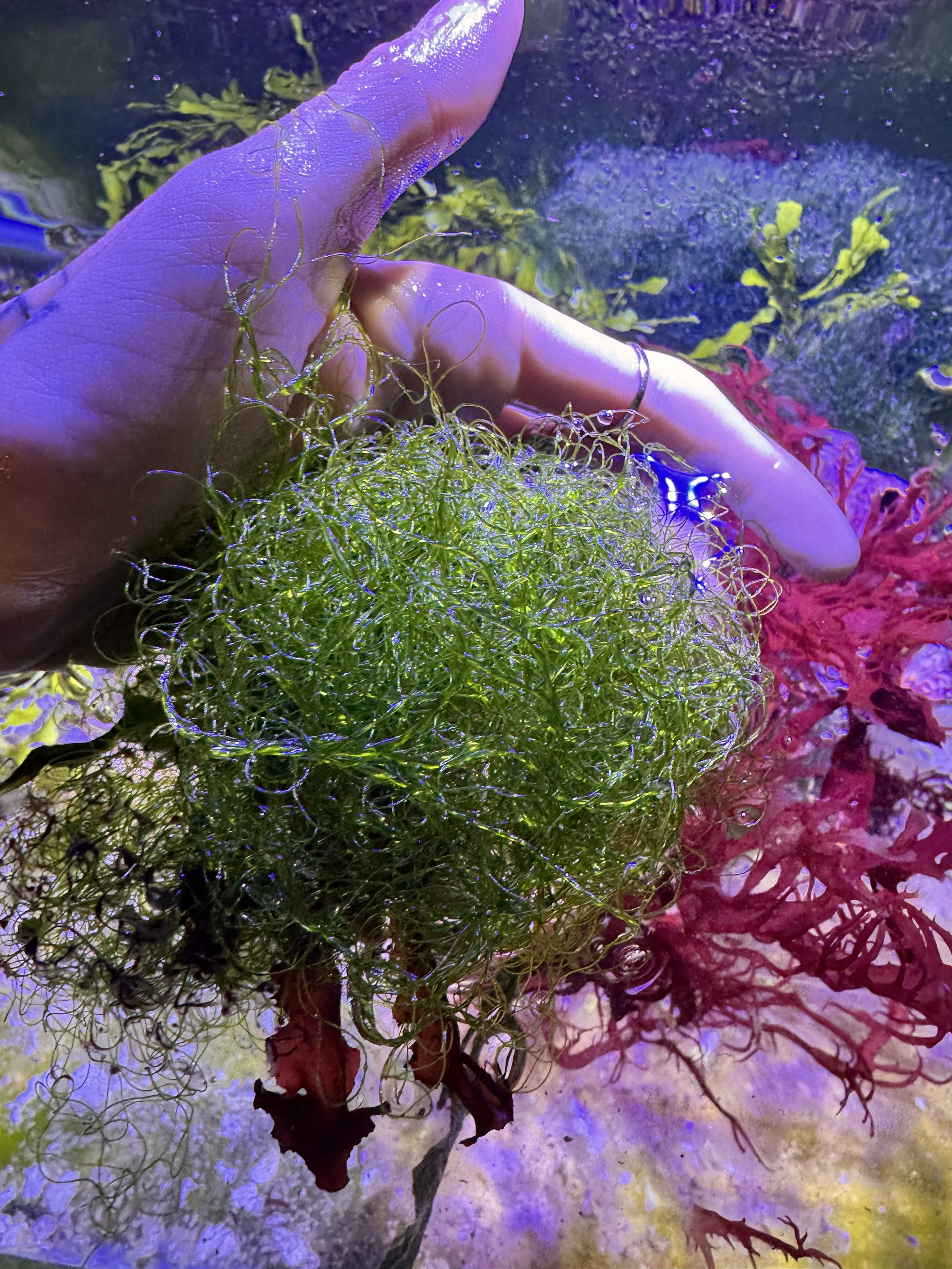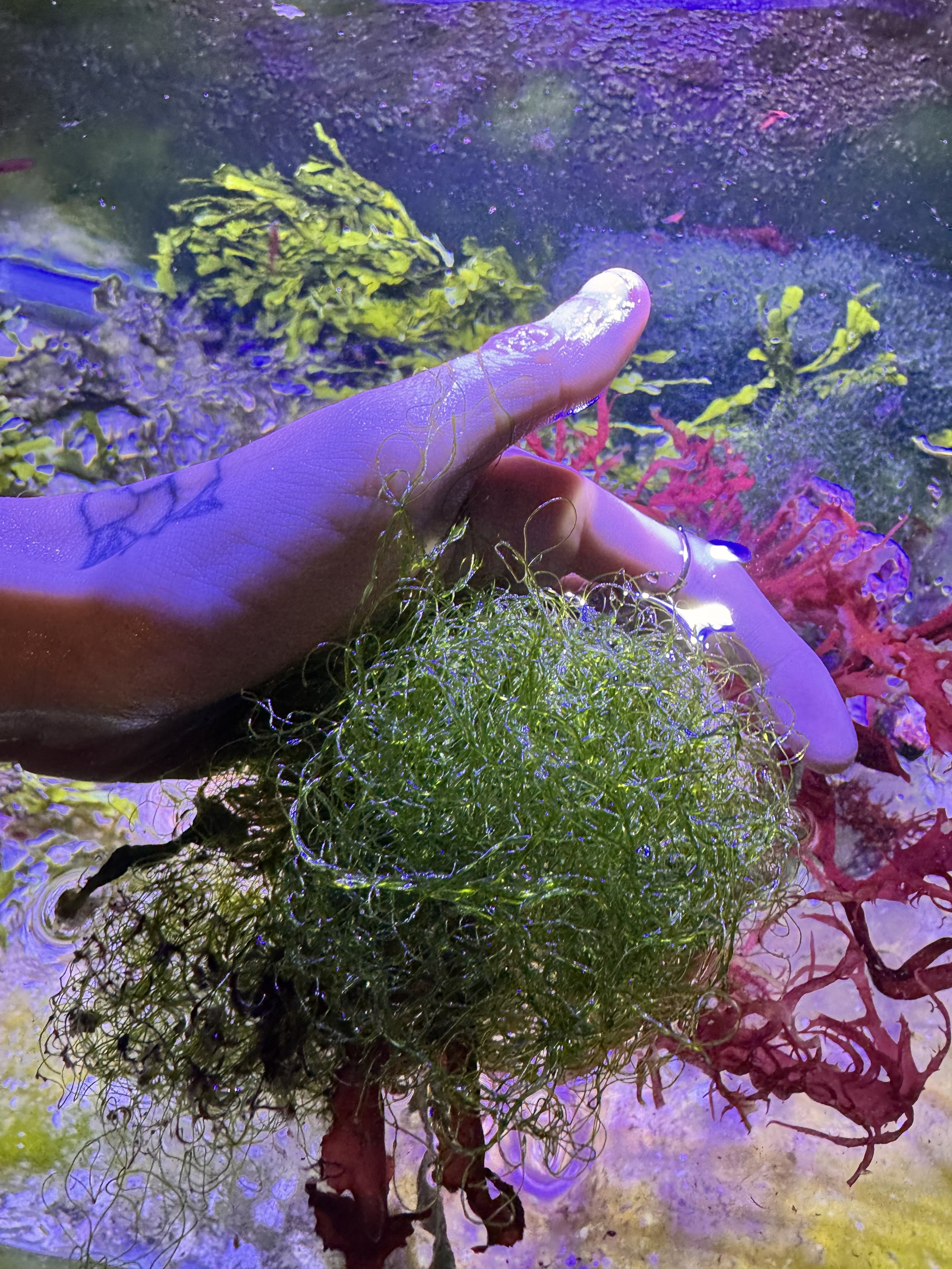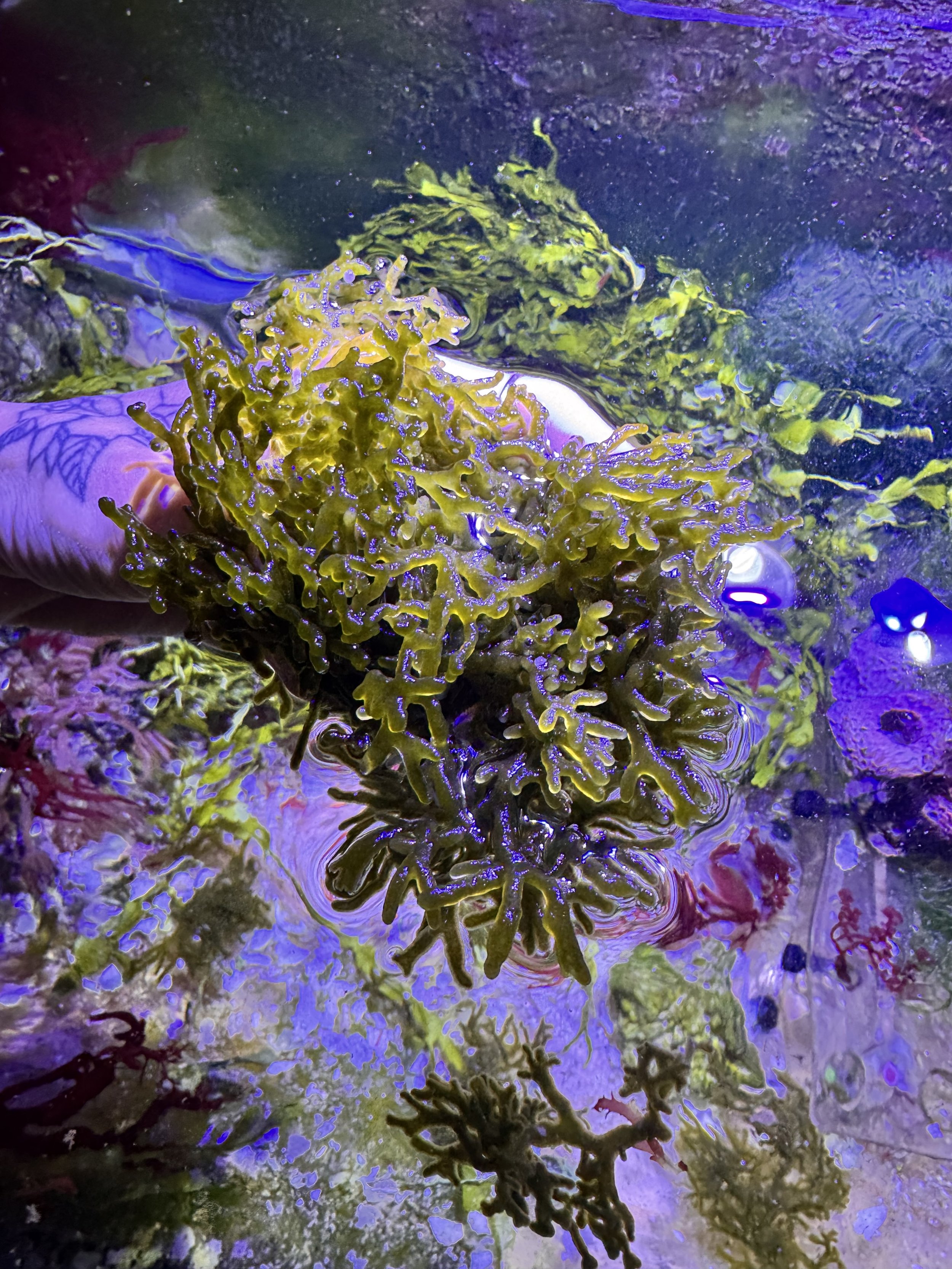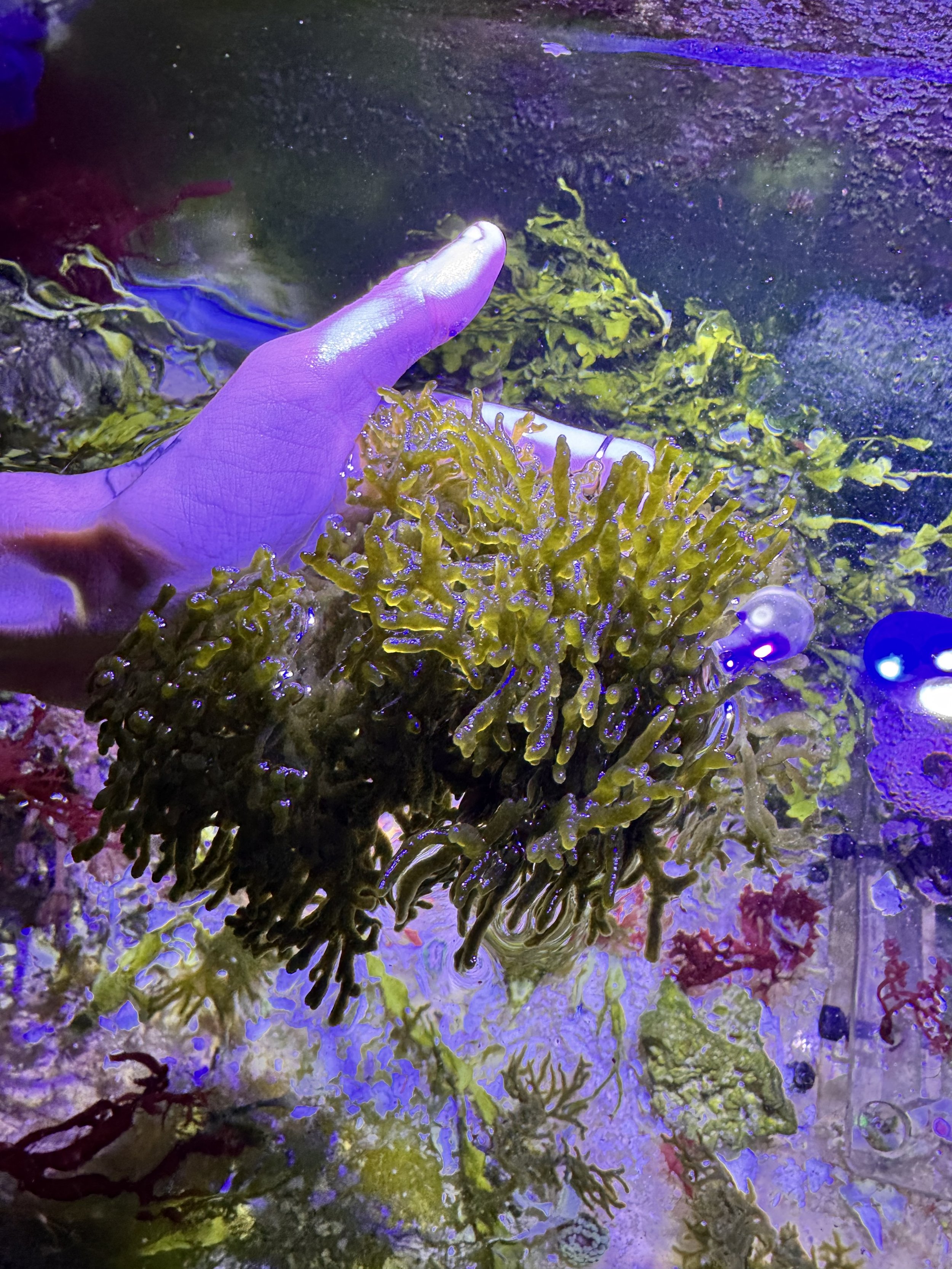Parameter Ideal Range
Temperature 72–78°F (22–26°C)
Salinity 1.023–1.026
pH 8.0–8.4
Alkalinity 8–12 dkh
Nitrate 1–10 ppm
Phosphate 0.01–0.10 ppm
Calcium 400–450 ppm
Magnesium 1250–1350 ppm
⚠️ Note: Dragon’s Breath will fade, melt, or stop growing if nutrients (especially nitrate) drop too low.
📦 Acclimation
Float bag to match temperature for 15–30 minutes
Slowly drip acclimate over 30–60 minutes to match salinity and parameters
Rinse in clean tank water or lightly in RODI if pests suspected
Place in low-to-moderate light at first, then move to desired lighting over 1–2 days
🧼 Pest Control / Quarantine Tips
Rinse gently before adding to tank
Quarantine new macroalgae for at least 3–5 days if possible
Watch for bubble algae, aiptasia, or bristleworms hiding within
💡 Lighting
Type: Moderate to high LED lighting preferred
Spectrum: Strong in blue and red spectrums (reef lights work great)
Photoperiod: 8–10 hours/day
Behavior: Dragon’s Breath glows fiery orange/red under actinic or blue lights—ideal for display tanks.
🌊 Flow Requirements
Moderate flow is ideal: enough to gently tumble or sway the algae without tearing it
Avoid placing it where it can get sucked into powerheads or overflows
🪴 Placement and Growth
Floating: Can be left to tumble in sump or refugium
Secured: Can be wedged into rock crevices or tied/glued onto rubble for display
Will not attach itself like Caulerpa or Gracilaria
✂️ Pruning & Maintenance
Prune by trimming excess growth with clean scissors
Remove any decaying or bleached sections
Keep some tumbling or in indirect light to prevent lower parts from dying
🧬 Compatibility
Reef-safe and compatible with corals and most fish
Do not house with: algae-eating tangs (e.g., Yellow Tang, Kole Tang), Rabbitfish, or Foxface—they will devour it quickly.
Safe with inverts, especially copepods and amphipods (they may hide in it)
🧪 Signs of Health & Trouble
Bleaching/Fading: Too little light or zero nutrients
Melting: Shock, lack of nutrients, or poor acclimation
Rapid Disintegration: Starvation, usually nitrate < 1 ppm
Dull coloration: Insufficient lighting or trace element deficit

